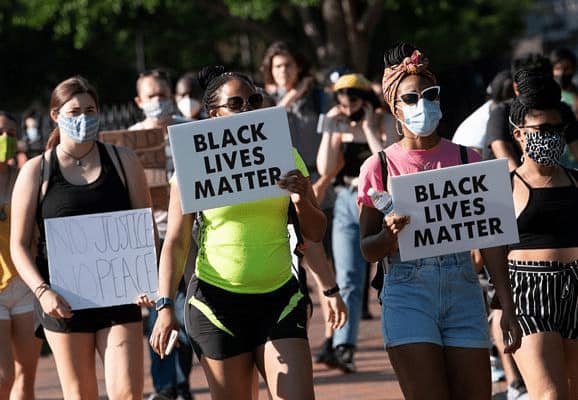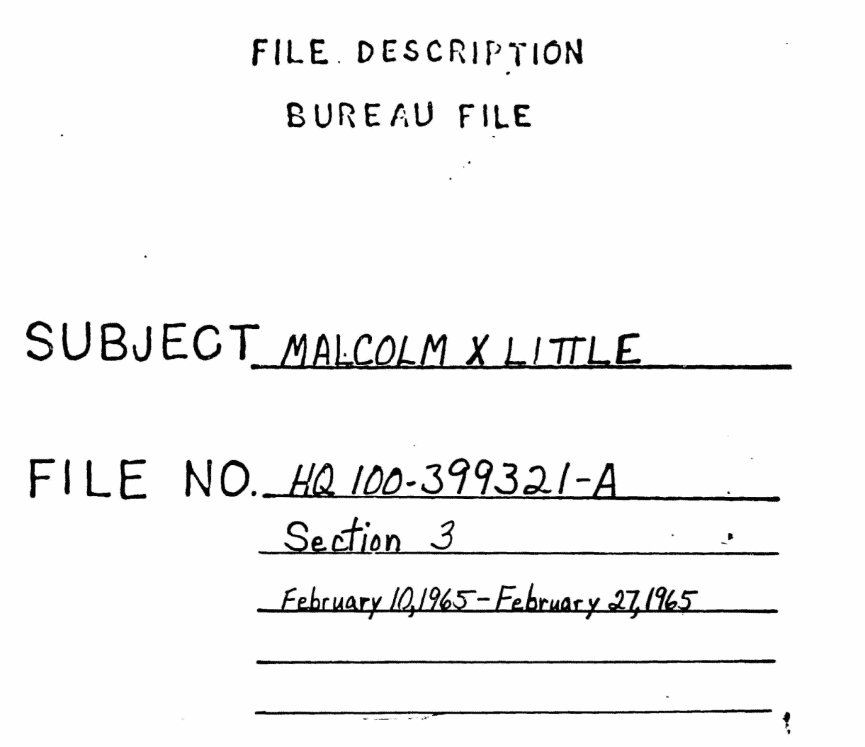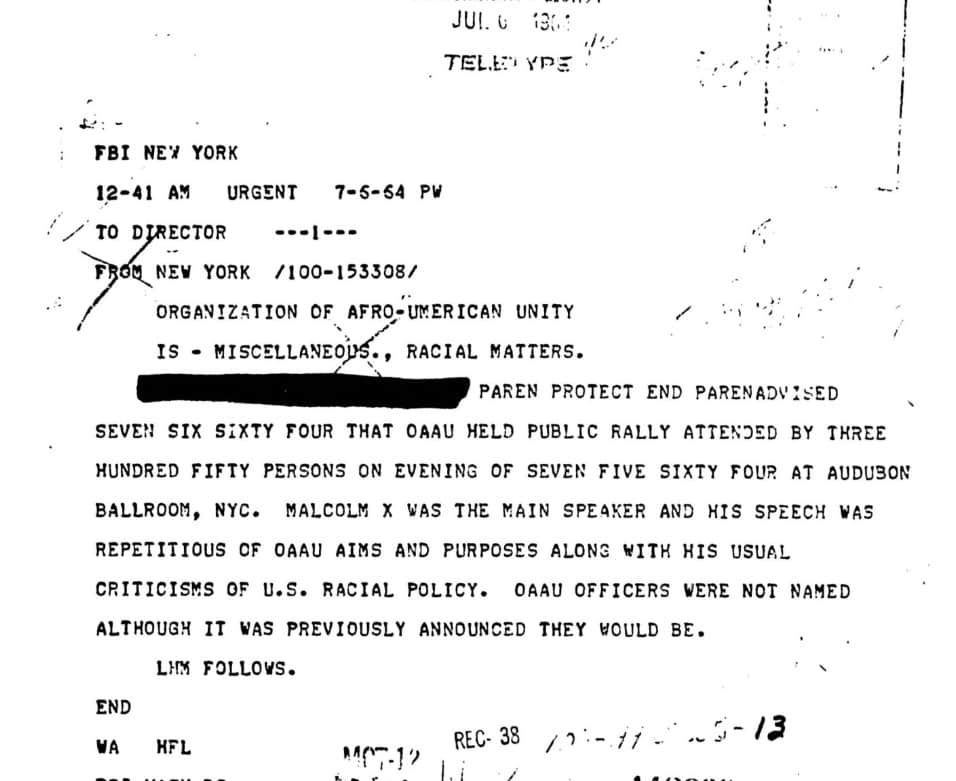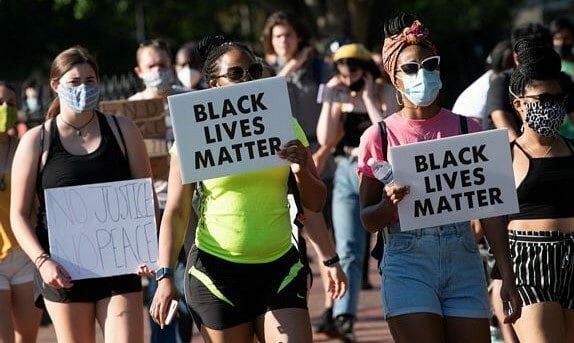│By Megan Bowler, Gale Ambassador at the University of Liverpool│
This post explores how Gale’s Archives Unbound series can be used to help with the urgent and vital task of decolonising the curriculum. Archives Unbound includes twenty-one unique collections focused on African American history, as well as numerous other collections which document the lives and experiences of other ethnic and social minorities around the world. (All Archives Unbound collections are available at the University of Liverpool, as we have access to Gale Reference Complete.) In light of the Black Lives Matter protests and growing discourses around ethnicity, colonialism and education, I was particularly drawn to exploring a collection focused on the federal surveillance of African Americans, including of Malcolm X and of the group he set up, the Organization of Afro-American Unity. This group argued that education was a vital element in the fight for civil rights.
Decolonising the Curriculum
Now more than ever, academic institutions are striving to reorient the traditional “pale, stale, and male” (PSM) approach to studies of the past by incorporating the literature of black and minority ethic (BAME) scholars. In 2015, students at the University of Cape Town began a protest against a statue that honoured Cecil Rhodes, a prominent British imperialist. Although the #RhodesMustFallCampaign began as a localised movement, it quickly caught the attention of the world’s media and inspired worldwide student demonstrations. Yet shockingly, a YouGov poll in 2016 revealed that
“44 per cent of the UK public said they were proud of Britain’s history of colonialism.” 1
I feel this shows that the British curriculum’s Eurocentric and pro-empire perspective has served to shadow the brutality of colonial atrocities committed by the British Empire – for who could be proud of such a history? With #BlackLivesMatter protests ongoing, it has been impossible to detach racism and public ignorance from education; it is important to question how we think, learn, and understand the past, and from whose perspective we do so. Only by embracing and developing a global understanding of history can we break down the barriers caused by racial discrimination.

Finding new perspectives
Primary archival research allows historians to offer new perspectives on past events and figures. The ability to locate and critically analyse primary source materials in this way is a skill that all History undergraduates are required to develop throughout the course of their degree. I’ve found Gale’s Archives Unbound collections to be truly valuable to my studies as they provide such a wide variety of primary sources including letters, monographs, trial records, posters, meeting minutes, and many other source types. Considering the vital and powerful issues alive in public discourse today as a result of moves to decolonise the curriculum and the Black Lives Matter protests, I was particularly drawn to exploring the collection Federal Surveillance of African Americans, 1920-1984.
Federal Surveillance of African Americans
From the early 1920s, many African Americans and radical black organisations were subject to federal scrutiny, harassment, and prosecution. Special FBI informants were used to infiltrate gatherings and attend the rallies of such organisations. This Archives Unbound collection, Federal Surveillance of African Americans, 1920-1984, provides unprecedented digital access to the FBI files created. By the time of his assassination, the Federal Bureau of Investigation had collated 15,610 pages of documents detailing the life of Malcolm X. Other prominent figures, such as Marcus Garvey, W.E.B. DuBois, and Phillip Randolph also had to endure constant federal surveillance, and their files are also accessible in this collection.


Wrap Collection Volume 7 C; Rootz Reggae & Kulcha; #03 Volume 2 #1. 1999. Archives Unbound https://link.gale.com/apps/doc/SC5110288527 /GDSC?u=livuni&sid=GDSC&xid=8877555e (p.32)
The Organization of Afro-American Unity
In 1964, Malcolm X founded the Organization of Afro-American Unity (OAAU). The group sought to promote African American self-determination in the fight for basic human and civil rights. Education was one of the principle elements written into the movement’s Basic Unity Program. The Program declared that education is such “an important element in the struggle for human rights” as it allows children to “rediscover their identity and thereby increase self-respect.” Due to being perceived as exhibiting a radical and dangerous nature, the movement was under federal surveillance from its establishment until its dissolution in the late 1960s. Documents from this surveillance, such as that below, are found in the “FBI File on the Organization of Afro-American Unity”.

Archives Unbound contains thousands of files and individual documents which help us reach new understandings of racism, discrimination and other interlinked issues such as immigration and intersectionality, helping scholars – and students – find new perspectives and ultimately decolonise the curriculum and their own education and outlook.
Individual Archives Unbound collections are available at many institutions, including the University of Liverpool, and the whole series is included in the Gale Reference Complete package.
If you are interested in reading more on this topic, check out other posts on The Gale Review which explore the issues with extensive use of primary source archives:
- Remembering Rosa: When One Word Sparked a Civil Rights Movement
- Miscegenation, or ‘Fake News’ of the Civil War
- Grassroots activism in publications by women, African Americans and the LGBT+ community
- Power, Protest & Presidential Profanity: The ‘Race’ for Civil Rights
- The Lesbian Avengers and the Importance of Intersectionality in LGBTQ+ Activism

